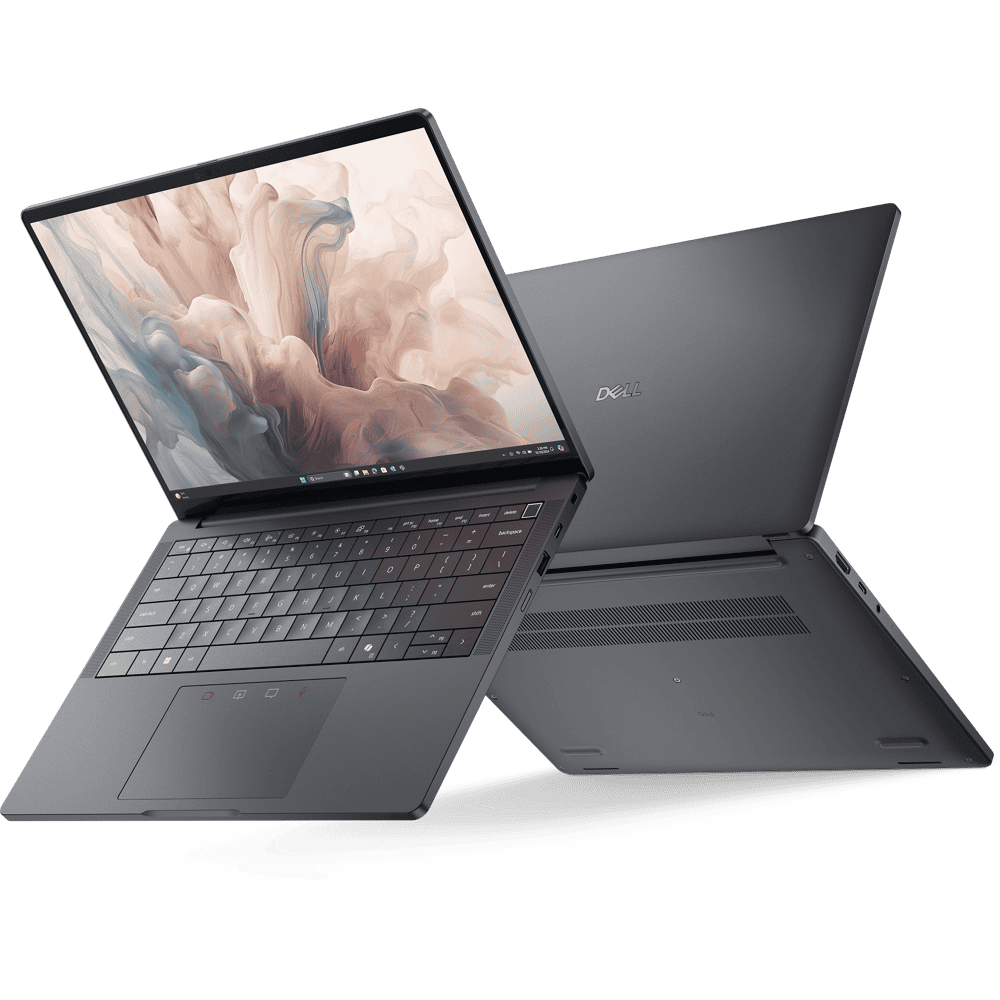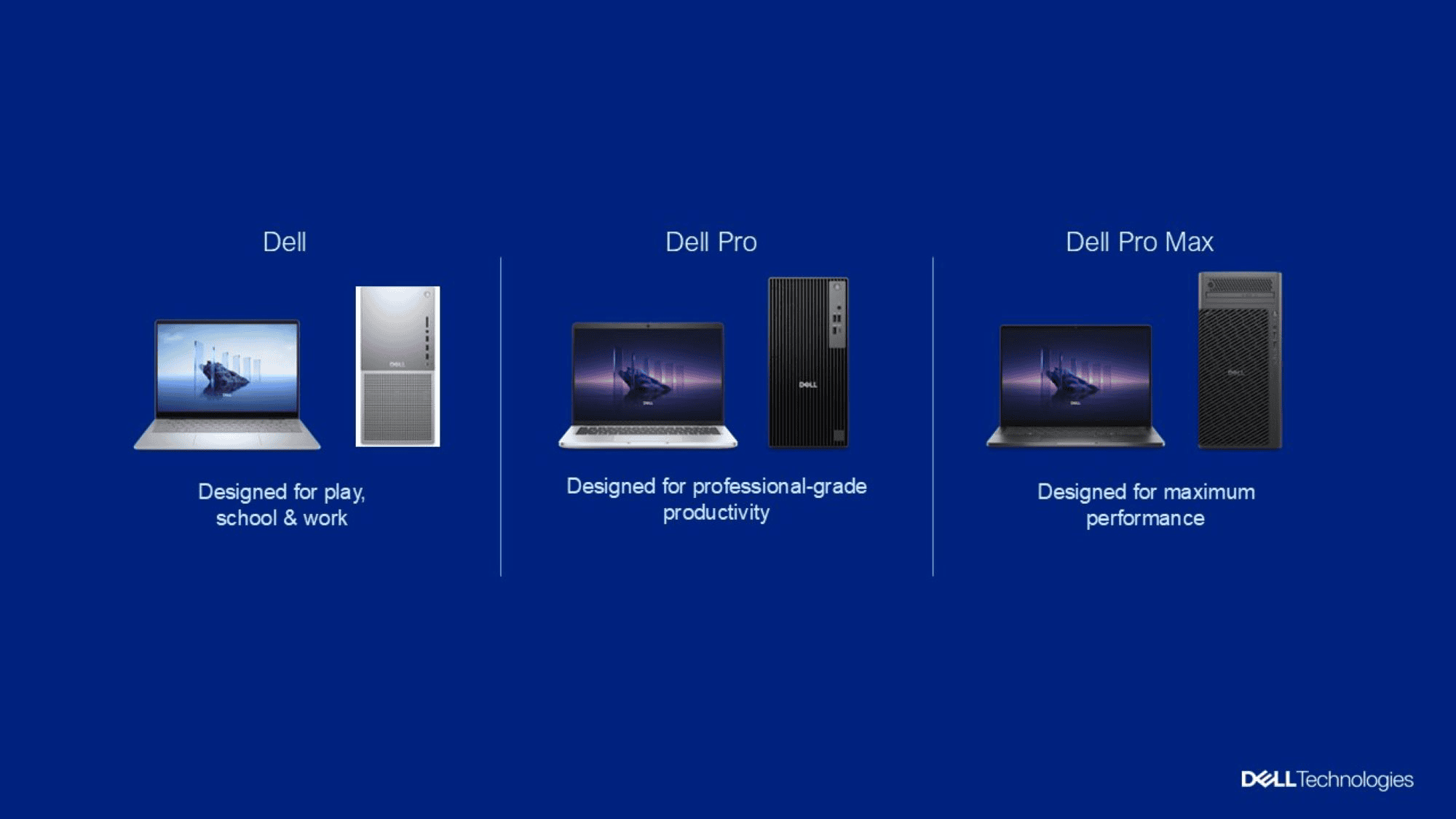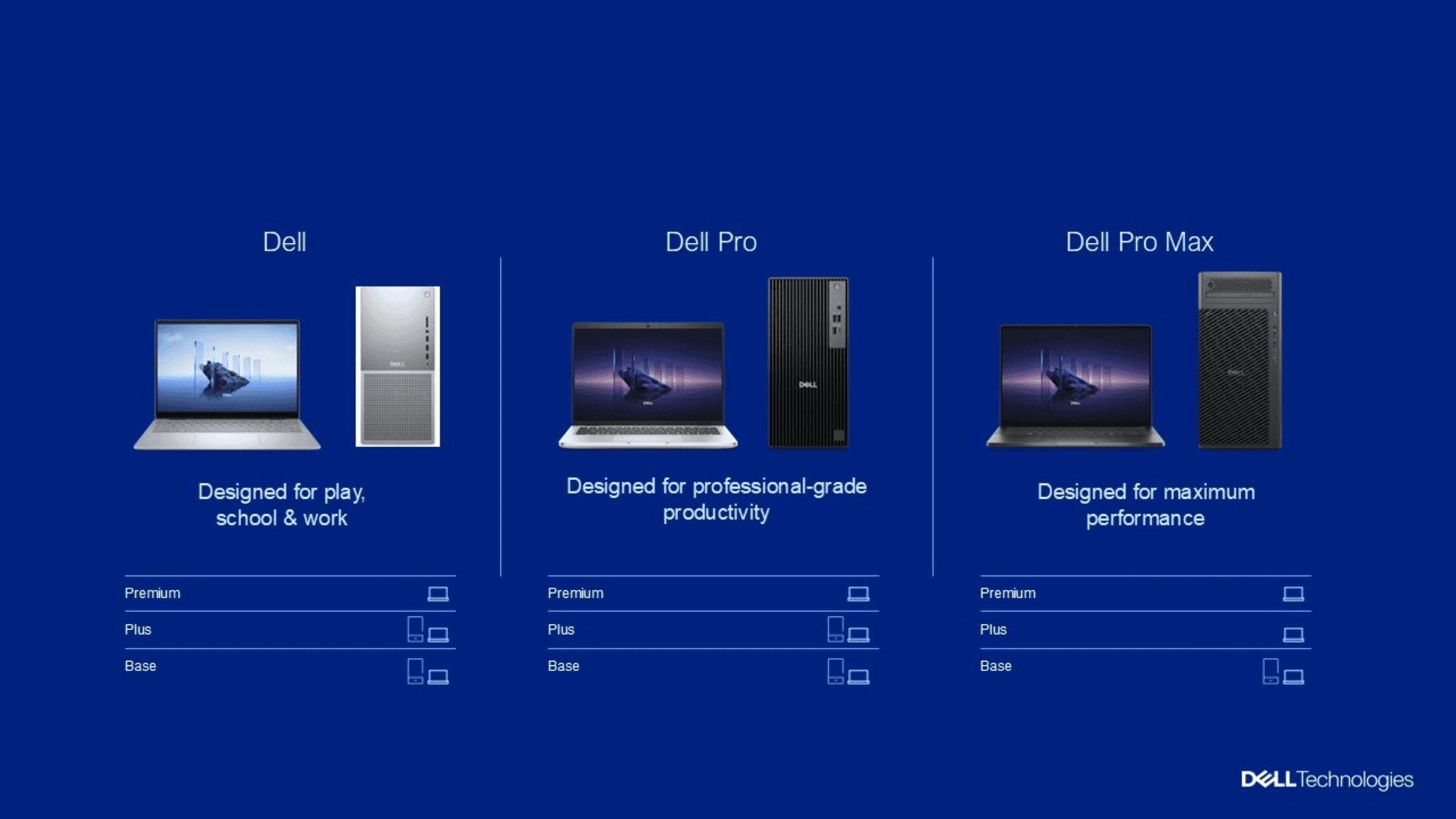Dell Technologies has decided to stop selling its popular XPS and Inspiron product lines. This change is part of a plan to rebrand and focus more on a premium market, similar to how Apple markets its products. This shift marks an important change in Dell’s product strategy, aiming to align better with what premium consumers expect.
By retiring its XPS and Inspiron lines, Dell is moving toward a new strategy that emphasizes a premium brand identity. Dell plans to take inspiration from Apple’s successful approach and commit to sustainability and good design. The company wants to reshape its position in the technology market and attract customers who seek quality and innovation.

As the technology industry evolves, Dell’s success will depend on how well it can implement this new vision and meet the changing needs of consumers. It remains to be seen if this bold move will lead to a new era of premium computing from Dell.
Additionally, Dell will simplify its product names to make things clearer for consumers. As people increasingly want straightforward choices, this change could give Dell an advantage. By making their branding more intuitive and user-friendly, Dell hopes to make selecting the right PC easier for everyone.
Dell’s New Lineup: Simple Names, Big Changes
Dell has just shaken up the PC world with a brand-new naming system for its laptops and desktops. Announced at CES 2025, this change ditches familiar names like XPS, Inspiron, and Latitude in favor of a streamlined, three-tiered approach. This shift brings Dell’s branding closer to Apple’s simple and intuitive product names. Let’s take a look at what each tier offers.

Dell
This is the base tier, aimed at everyday users who need a reliable device for work, school, or play. Think of it as the equivalent of Apple’s MacBook Air or iPad – great for everyday tasks, browsing, and entertainment. Expect solid performance and a focus on affordability.
Dell Pro
Stepping up to “Pro” gets you devices designed for business professionals and power users. These machines offer enhanced performance, durability, and security features. They’re comparable to Apple’s MacBook Pro line, built for demanding workloads and productivity.
Dell Pro Max
At the top of the line, “Pro Max” signifies maximum performance. These are Dell’s most powerful laptops and desktops, engineered for tasks like video editing, 3D rendering, and AI development. Think of them as the Dell equivalent of Apple’s Mac Studio or high-end MacBook Pro configurations.

What’s Behind the Change?
Dell’s move to this simplified naming system has a few key goals:
- Clarity: The new names make it easier for customers to understand the differences between Dell’s various offerings.
- Focus on AI: Dell is emphasizing the growing importance of artificial intelligence in personal computing. Their new devices are optimized for AI-powered applications and include dedicated AI processing hardware.
- Sustainability: Dell is committed to using recycled and sustainable materials in its products. The new lineup features laptops with recycled aluminum, magnesium, and bio-based plastics.
A New Era for Dell
| Tier | Target User | Comparable Apple Product | Key Features |
|---|---|---|---|
| Dell | Everyday users | MacBook Air, iPad | Affordability, essential performance |
| Dell Pro | Professionals | MacBook Pro | Enhanced performance, durability, security |
| Dell Pro Max | Power users, creators | Mac Studio | Maximum performance, AI capabilities |
This rebranding is a significant step for Dell, signaling a new focus on AI, performance, and sustainability. It will be interesting to see how the market responds to this simplified approach and how it impacts Dell’s competition with Apple and other PC makers.
Short Summary:
- Dell is discontinuing its XPS and Inspiron product lines, focusing on a more streamlined portfolio.
- This shift reflects a strategy to elevate Dell’s brand identity, similar to Apple’s premium image.
- New products are expected to emphasize advanced technology, sustainable practices, and premium design.
Dell Technologies has officially announced the phase-out of its popular XPS and Inspiron lines, a bold strategic move that signals a departure from its traditional offerings to a more refined brand identity. This decision comes in the context of a rapidly evolving PC market, where premium brands like Apple have continued to gain traction, attracting consumers with a mix of high performance and aesthetic appeal.
The Background of Dell’s Decision
The origins of this decision can be traced back to Dell’s recognition of the need to adapt to shifting consumer preferences and market dynamics. Dell has long been a formidable player in the personal computer market, with its XPS and Inspiron lines being synonymous with quality and value. However, in an age where consumers increasingly gravitate towards premium, elegant products, Dell’s existing portfolio began to appear less competitive.
“With our XPS portfolio, we have a long history of taking risks, being inquisitive and asking big design questions,” said a Dell spokesperson. “We are now unifying our design philosophy to ensure a consistent and modern user experience across our offerings.”
This unified design philosophy aims to streamline Dell’s laptop offerings, ensuring that every product in the new range shares essential aesthetic and functional elements. By emphasizing elegance and simplicity, Dell hopes to draw in consumers who value not just performance, but a cohesive brand experience.
Brand Strategy: Emulating Apple
The decision to discontinue both the XPS and Inspiron lines aligns Dell with a broader trend in the tech industry, where simplicity and style increasingly dominate consumer preferences. Apple’s success in creating a devoted following through its emphasis on design, user experience, and brand loyalty serves as a model for Dell.
“Our goal is to cultivate a brand that resonates with consumers on a personal level. We want them to see Dell not just as a technology provider, but as a lifestyle choice,” said the company’s marketing head.
This strategic realignment focuses on fewer, but more impactful product offerings, akin to Apple’s approach. The goal is to frame Dell’s technological prowess within a luxurious brand identity, attracting a clientele willing to invest in quality over quantity.
A New Wave of Products
With the discontinuation of XPS and Inspiron, Dell is poised to launch a new lineup of products marked by groundbreaking technology, sustainable materials, and exceptional design. The initial offerings indicate a robust focus on high-resolution displays, OLED technology, and advanced processing capabilities. The company is looking to introduce enhanced features such as:
- AI-powered functionalities that streamline user interactions and improve workflow efficiency.
- Sustainable product designs utilizing recycled materials and eco-friendly packaging.
- High-performance graphics and processing units tailored for power users and creatives.
These product developments suggest a desire to stake a claim in the premium market segment, competing directly with the likes of Apple and other high-end tech companies.
Design Aesthetics and User Experience
A significant part of Dell’s revamped strategy focuses on elevating design aesthetics and enriching user experience. The new range of laptops will feature:
- Refined chassis made from CNC machined aluminum, enhancing both durability and visual appeal.
- Advanced thermal management systems to ensure optimal performance even under demanding workloads.
- Seamless integration of touch features and immersive audio experiences through Dolby Atmos and high-definition webcams.
Dell’s commitment to high-quality design seeks to invoke a sense of sophistication and modernity that is often associated with Apple’s product range.
Emphasizing Sustainability
As part of its new brand strategy, Dell is also committed to sustainability. The company is moving towards a circular economy model, which includes designing products for longevity, reparability, and responsible material sourcing. The initiative signifies Dell’s aspiration to not only stand out in the tech market but also to lead by example in environmental stewardship.
“Our products will not only meet the needs of consumers but do so in a way that respects our planet. Sustainability is at the heart of our new design philosophy,” commented Dell’s Chief Sustainability Officer.
This endeavor positions Dell as a forward-thinking technology provider, aligning with a growing consumer base that prioritizes ethical and sustainable practices in purchasing decisions.
Responding to Feedback and Consumer Expectations
Throughout the transition period, Dell is actively engaging with its consumer base to understand their needs and preferences better. The goal is to ensure that the new product offerings are not merely reflective of corporate strategy, but resonate with actual user experiences.
“We are committed to listening to our customers and adapting our products to suit their evolving expectations. Their insights are invaluable to the direction we take as a company,” said the product development team during a recent conference.
This consumer-centric approach highlights a critical shift in how Dell conceptualizes its relationship with its clientele, focusing on feedback as a pivotal aspect of product development.
Potential Implications for the Market
The discontinuation of XPS and Inspiron could reshape the competitive landscape within the PC industry. Observers speculate that this bold move may force other manufacturers to reevaluate their offerings in an effort to keep pace with Dell’s new direction.
Furthermore, as Dell reinforces its commitment to premium quality and sleek design, competitors may find themselves needing to enhance the consumer experience to retain market share.







